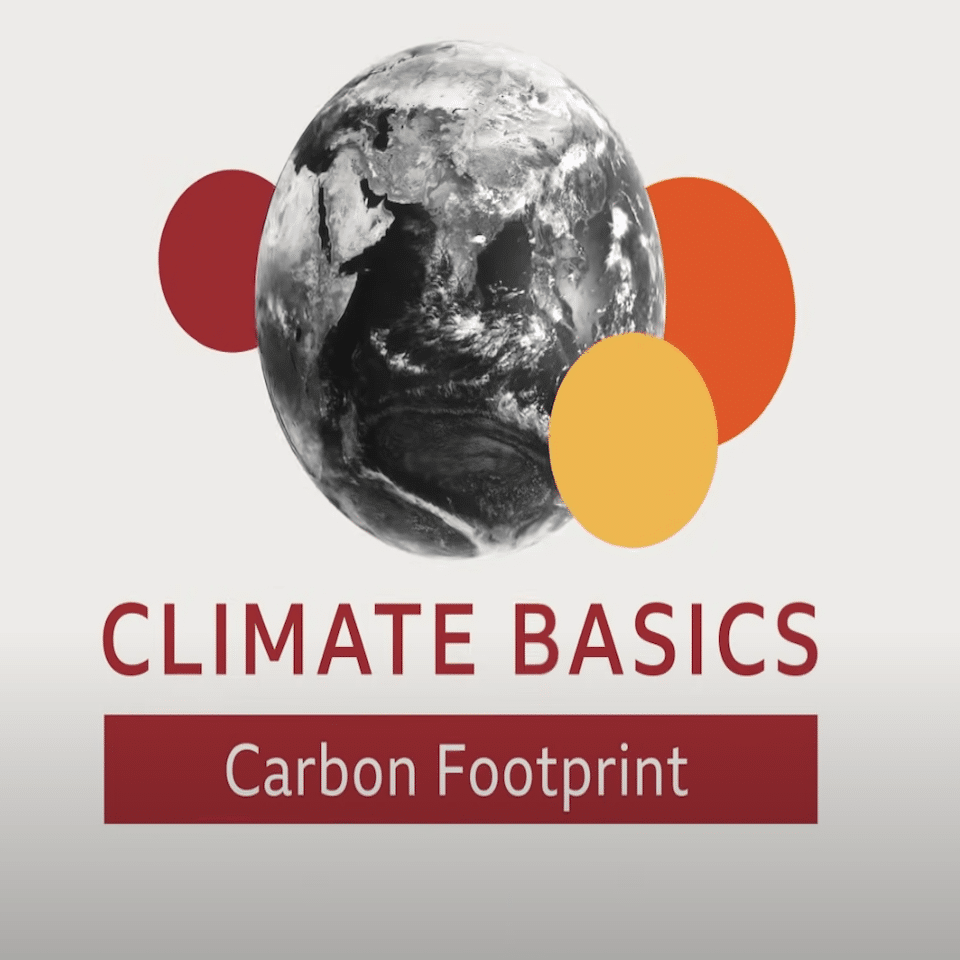Overview
“Progress is impossible without change, and those who cannot change their minds cannot change anything.” — George Bernard Shaw, playwright and activist
You hear it all the time: Turn off the water when you brush your teeth. Don’t leave your lights on. Cut down on your driving. Bring your own bag.
You, you, you. There is a persistent, pervasive narrative that climate change — its causes and solutions — rests entirely on your shoulders. We are told that our choices have an outsized impact on the planet and humanity. We shame and blame individuals for their actions, but guilt won’t turn anyone into an eco warrior.
While awareness, adjustments and action at the personal level is critical, transformational societal change requires more.
In the early 1990s, Mathis Wackernagel and William Rees coined the term ‘ecological footprint’. The concept was developed as a response to the Brundtland Report (aka Our Common Future) where the authors called for better ways of measuring sustainability. Initially, ecological footprint was used to measure environmental impact at the national and global level.
Ecological footprint measures the area required to provide the natural resources we consume, including cropland, grazing land, fishing grounds, built-up land, forest area, and carbon footprint. When ecological footprint is larger than what an ecosystem can regenerate, it is called ‘ecological overshoot.’ According to Global Footprint Network, our carbon footprint makes up more than half our total ecological footprint (currently around 60% globally), and measures the amount of forest land required to sequester the CO2 humanity emits into the atmosphere.
The term ‘carbon footprint’ — commonly used to refer to the amount of carbon dioxide that a person emits in a lifetime — was popularized by an advertising campaign by BP, one of the world’s largest oil and gas companies. They framed a narrative of individual responsibility around climate change, effectively shifting focus and blame away from those who actually produce the highest amount of greenhouse gas emissions. BP and other polluting multinationals have continued to emit carbon and other greenhouse gases without adequate scrutiny or regulation. Corporate emissions have increased massively; in fact, 71% of global emissions come from only 100 companies.
Why does this matter? The consequences of ecological overshoot are diverse and wide ranging. They include the accumulation of greenhouse gases in the atmosphere, deforestation when we cut forests down faster than they regrow, the collapse of ecosystems when we take more out than populations can sustain, biodiversity loss, and soil degradation (stay tuned for more information on these topics later in the month). For more information, check out our partner Global Footprint Network’s resource page.
The fact remains: individual action alone is not enough to combat climate change or reverse ecological overshoot. During the worst of the pandemic, we saw a massive decrease in emissions, specifically across the transportation sector. Because people were forced to stay home, emissions from air and land travel decreased significantly. However, overall global emissions dropped only 4 to 7% from previous years, not nearly enough to signify lasting change or solutions.
However, individuals have more power than you think.
Social scientists have long argued that ditching plastic water bottles, bringing reusable bags to the grocery store, and taking other small steps could also be a gateway toward deeper involvement in political activism and environmentalism. The more people who take these initial actions, the more likely they are to engage repeatedly and grow to identify as environmentalists, those who push for new and better environmental protections or attend meetings to lobby representatives.
There’s also evidence that green habits are ‘contagious;’ if you install solar panels or drive an electric car, your neighbors are more likely to take inspiration and do the same. What’s more, a committed minority of people (usually around 25%) making change can help to create a societal level shift in behavior, one with enormous implications. This is what’s known as social tipping points, which have been instrumental in creating wide-scale change.
While each sustainable choice might not feel like much, you are voting with your dollar. Some businesses pave the way by going all in on climate, better products and lower footprints, like Klean Kanteen. The company just made an announcement to go even deeper to shift bottles and straws to 90% recycled steel starting this spring, with 95% of products made from third-party-certified recycled stainless steel by early 2023. That will mean a 40% reduction in steel greenhouse gas emissions, 30% reduction in energy demand, and 60-80% reduction in ecosystem impacts. Businesses pay attention to market signals; what and how you purchase sends a direct message to companies and industries. When a large enough group of consumers shifts spending and flexes consumer power, it can force major companies to change what and how they make decisions, source and produce.
Another point to consider? Recent studies have shown that those in leadership roles who advocate for change are far more likely to be supported if they practice what they preach. Your credibility as an environmental advocate depends on how much you look at, alter and align your own lifestyle practices.
Change is achieved by demonstrating to governments, corporations, leaders and our global peers that collective action is needed and possible. We do this with our dollars, our choices, our votes, and our voices — and we won’t take no for an answer.
THINK
Changes in daily habits and consumption patterns may not seem significant in a world of nearly 8 billion people, but every decision contributes to the well-being of humans, other species and the earth. What would the world look like if each person consumed less and demanded more ethical production?
ACTION
First, look at today’s video explaining the concept of an ecological footprint. What stands out to you?
Calculate your footprint using Global Footprint Network’s calculator.
- What are your results? How many planets does it take to support your personal lifestyle?
- What daily activity of yours do you think is most resource intensive?
- What changes can you make to reduce your footprint? How will you start?
Take Action:
- Choose one habit you can change today to reduce your carbon footprint. Start small, as this will be easiest to stick to. Remember: every step counts and consistency is key in lasting change.
THINK
Everywhere we go and everything we do has an impact on both people and planet, though our ecological footprint is much larger than the size of our foot. Each year, the Global Footprint Network calculates Earth Overshoot Day, the date on which our demand for resources has exceeded what the Earth is able to regenerate that year. In 2021, Earth Overshoot Day was July 29. This date has fluctuated in the past 50 years, from December 29 in 1970 to July 29 in 2021.
2020 was a unique case. It was the first time the date was pushed back by 24 days to August 22 when the world shut down due to Covid-19. With no travel, fossil fuel output and other human-caused pollutants decreased dramatically, providing a brief glimpse into how our planet could change for the better if we collectively committed to reducing our footprints.
It is not just up to individuals to reduce carbon emissions, but also large companies, corporations and countries, as you read about today. Consider how your behavior aligns with your values and goals for a greener planet.
ACTION
- Learn how 2021’s Earth Overshoot Day was determined, and calculate your own.
- Consider your daily, weekly, and monthly habits. Things like morning lattes or how often you buy new clothes can really add up. On the flip-side, bringing your own bags to the store or walking instead of driving help reduce resource usage. Choose one habit that you would like to work on and one you are proud of to reflect upon.
- Choose one of Global Footprint Network’s steps (or make your own!) to help #MoveTheDate and answer the following questions to see how your personal footprint contributes to “global overshoot.”
– Which steps can you take to push back your personal Overshoot date?
– What changes can you make alongside those you live with to reduce your footprint at home?
– Using resources available to you (apps, colored pencils, search engines, etc.), create an infographic around your pledge to reduce your footprint.
THINK
Individual actions impact ecological footprints, but that is only one part of the issue. Consider this: 25% of the world’s population consumes 75% of global resources. Such out-of-balance consumption cannot be reversed by personal action alone; leaders need to introduce, implement and enforce policies focused on equity and sustainability. Drivers of governments, businesses and institutions at every level have the power to create and mandate policies for a sustainable future. Given this, what do you think world leaders should be doing to act on climate?
ACTION
First, watch this video from youth environmental activist Xiuhtezcatl Martinez to hold leaders accountable.
Now, it’s time to be creative. Produce an informative and mobilizing call to action to insist that leaders enact policy to act on climate. Incorporate facts, bold visuals, personal story and specific asks. Use whatever format and style you feel will be most impactful to convey your points and passion.
- Share the call to action with relevant leaders via email and by posting on social media and tagging their accounts. Use any platform where you think the message will be most likely to resonate; Twitter is often best for this!


